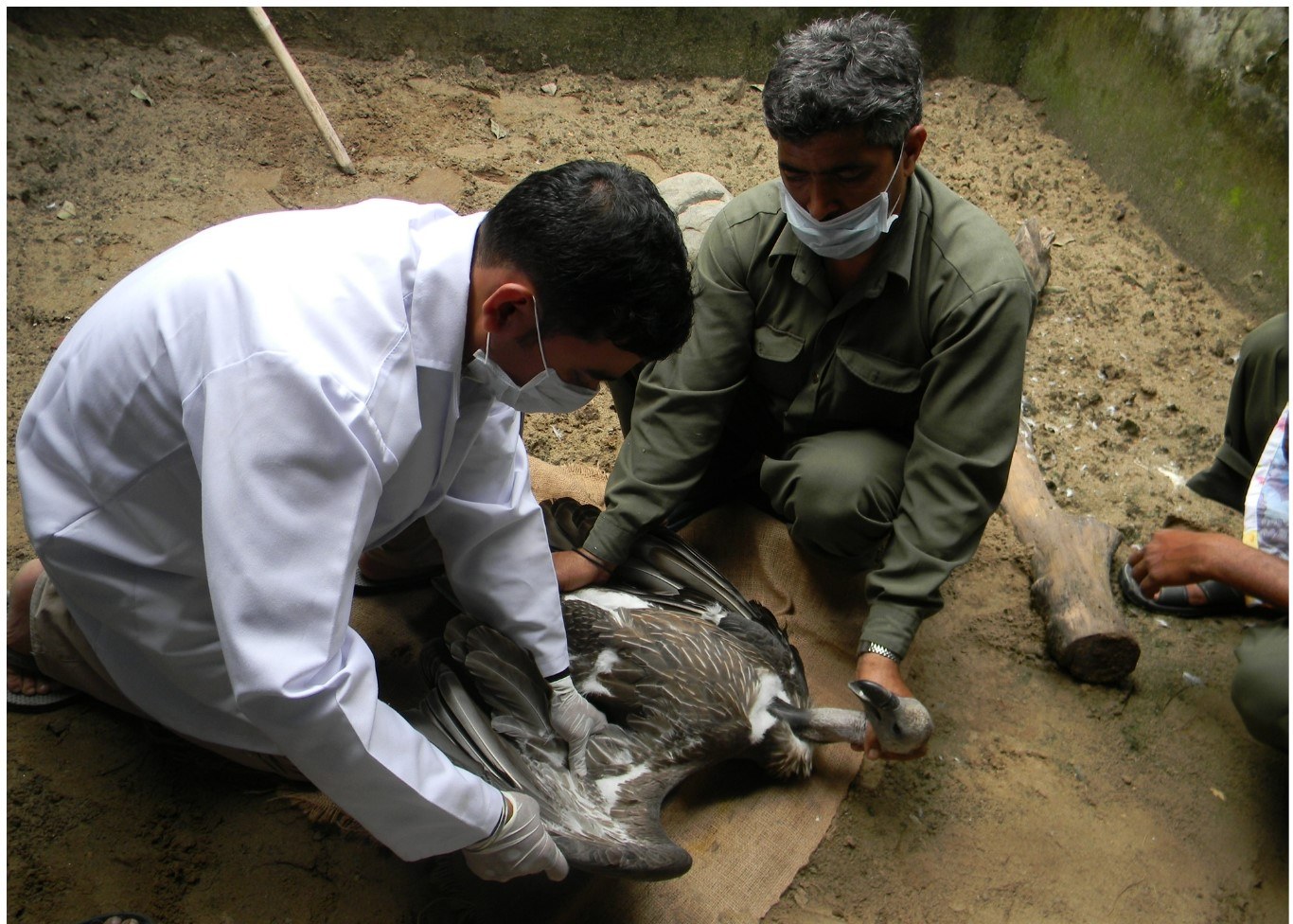Why You Should Love Vultures: Protecting the Health of Asia’s Misunderstood Scavengers
Wildlife Vets International

This year Wildlife Vets International (WVI) will take part for the first time in The Big Give Green Match Fund campaign, to raise vital funds for vulture conservation and other projects to protect species that play a critical role in keeping ecosystems healthy. We have been awarded £5k in match funds, which we hope to double to £10k through online donations between the 20th and 27th of April.
Biodiversity loss frequently increases disease transmission (Keesing et al, 2010), and the fate of Asia’s vultures provides an example of just how easily things can become unbalanced. When this keystone species plummeted in numbers from tens of millions to just a few thousand in Asia in the 1990s, the knock-on impacts included an increase in human mortality (Ayal & Anant, 2023), underlining the importance of the One Health concept. At its height, the decline amounted to 5000 birds dying a day, every day, for 15 years. The cause: unintentional poisoning with the NSAID diclofenac.
While much is being done to reverse the fate of Asia’s vultures, there is no room for complacency. WVI Executive Director, Olivia Walter, who has just returned from this year’s Save Asian Vultures from Extinction meeting in Nepal, said: “Vultures are so misunderstood. They play such a vital role in keeping ecosystems balanced – something we didn’t really appreciate until their catastrophic decline in Asia in the 1990s. One of the things WVI really wants to do is build a ‘Vulture Veterinary Network’ across South Asia. It would be a mechanism to transfer knowledge from the relatively few vulture veterinary experts to a larger number of vets across India and Nepal. For example, these locally-based vets would support the existing Vulture Breeding Centres which house the white-rumped vulture insurance population in India. These vets will become experts in their own right and be able to support colleagues in other vulture range states. That’s my dream!”
In addition to creating a Vulture Veterinary Network, WVI hopes to use funds raised during the campaign to:
- Support pre-release health checks for captive-reared vultures in India;
- Train vets working in the vicinity of captive-bred vulture release sites;
- Educate more conservationists on the importance of vultures;
- Transfer expertise in pathology and disease surveillance, and
- Facilitate the collection and exchange of information on how vultures in the wild are responding to new threats, such as predation, the risk of electrocution and infectious disease. It’s significant that when vulture numbers were high, prior to 1994, avian flu and Newcastle’s disease were much less prevalent than they are now.
Find out more on the WVI website: https://bit.ly/40jM3PH
WVI is a registered British charity (1109670) which makes sure that those working on the conservation frontline can get the veterinary expertise they need to save endangered species. We will celebrate our 20th anniversary in 2024.
To donate to WVI: https://bit.ly/WVIDonate
Photo: Vulture Breeding Centre, Pinjore. Credit: Dr Devojit Das.
